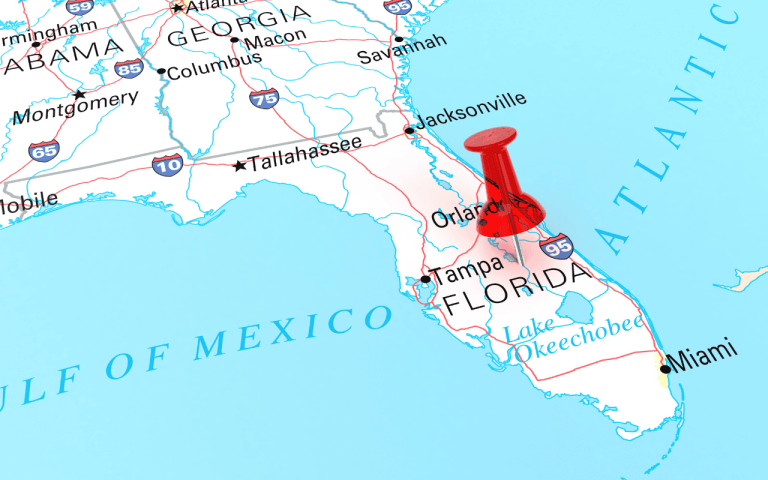Writing is one of the most important inventions of humankind. It enables ideas to be communicated across large distances and preserves those ideas for future generations. From this essential aspect of writing, essays have arisen as mediums of persuasion and personal expression. Thus, it’s no surprise that most scholarships require essays to assess the qualities of a candidate. It’s convenient, tried-and-true, and gives candidates the ability to convey parts of themselves without knowledge of complicated technological or artistic skills.
In this article, we’ll explore the best essay scholarships you should start applying for. To accompany this list, we’ll break down the basics of an essay scholarship, how to write an essay, and other scholarship opportunities to check out. Scholarship essays have an intimidating reputation, but if you view them as just another way to introduce yourself, they can seem a lot more approachable. Now, without further ado, let’s get into the best essay scholarships so you can start saving up for college or graduate school!
Scholarship Institute is your guide to all things scholarship! Anyone thinking about postsecondary education should check out our top scholarships, tutoring recommendations, and scholarship website reviews.

Essay Scholarships: The Traditional Scholarship
An essay scholarship is a form of financial aid that requires students to submit an original essay as part of the application process. These scholarships are often awarded based on the quality of the applicant’s writing, their ability to engage with the given topic, and how effectively they can communicate their ideas. The topics for essay scholarships vary widely, ranging from personal stories and experiences to more academic or socially focused themes.
Essay scholarships are available to high school students, undergraduate and graduate students alike. However, it’s most important for graduating high school seniors and current college students to start thinking about the scholarship process since they have college fees needing to be paid.
Key Characteristics of Essay Scholarships:
- Prompt-Based: Most essay scholarships provide a prompt or topic that applicants must respond to within a specific word count. The prompt can be personal (e.g., “Describe a challenge you’ve overcome”), societal (e.g., “How can we address climate change?”), or related to the sponsor’s mission (e.g., “Why is financial literacy important?”).
- Judged on Quality: Applications are judged based on content, originality, structure, and adherence to the prompt. Some scholarships may also factor in grammar, spelling, and style, so attention to detail is crucial.
- Personal Insight: Many essay prompts encourage students to share personal experiences, challenges, or goals. This aspect allows the scholarship committee to get to know the student on a deeper level and assess their potential beyond grades and test scores.
If you’re pursuing higher education, you should check out these scholarships for undergraduate students!

Essay Scholarship vs No-Essay Scholarships
While essay scholarships focus on written submissions, no-essay scholarships remove that requirement entirely. No-essay scholarships are designed for students who may not have the time or resources to craft an essay but still wish to seek financial aid. These scholarships often have simpler application processes, such as filling out a form or meeting basic eligibility criteria.
Essay scholarships, on the other hand, may offer more substantial awards due to the effort involved, but they can be more competitive. No-essay scholarships are often more accessible but may come with smaller awards or other trade-offs, such as being based entirely on luck or specific criteria like location or background. Applying to multiple scholarships of this type is the best way to maximize your chances.
Being a graduate student can be tough, but these grad school scholarships can alleviate some of that financial burden!

How to Write an Essay for a Scholarship
Writing an essay for a scholarship is no small feat, but there are certain strategies you can use to make the process easier and more engaging. Remember, scholarship essays can be your gateway to securing financial support for your education, and they provide a platform to showcase who you are beyond grades and test scores. Here’s a step-by-step guide to crafting a stellar, winning essay.
1. Understand the Prompt
The first step in writing a scholarship essay is to thoroughly understand the essay prompt. Scholarship providers often ask specific questions or set particular themes to gauge your ability to respond thoughtfully and creatively. Read the prompt several times to ensure you fully grasp what is being asked. Ask yourself the following questions:
- What is the main topic or theme?
- What specific aspects of the topic does the prompt want you to address?
- Are there any underlying expectations, such as personal insight, leadership, or community involvement?
It’s crucial to stay on topic and answer the question directly. Straying from the prompt can weaken your application, no matter how well-written the essay is.
2. Research the Scholarship Organization
Each scholarship is provided by an organization or individual with a specific mission or goal. Whether it’s a company, nonprofit, or educational institution, understanding the values of the scholarship provider can help you tailor your essay to align with their mission. For instance, if the scholarship is from an art organization, you might want to emphasize your imaginative flair and ability to see beauty outside of the ordinary.
Researching the scholarship provider allows you to understand what qualities or experiences they might value most in an applicant. This research can also inspire examples and experiences you might want to include in your essay.
Pro Tip: If you’re applying to creative writing scholarships, don’t be afraid to utilize lots of rhetorical and literary devices. For these scholarships, your writing style matters as much as the content.
Apply for these art scholarships with the tips from our example about art organizations!

3. Brainstorm and Outline Your Ideas
Before diving into writing, take the time to brainstorm ideas. Reflect on your personal experiences, achievements, challenges, and goals that are relevant to the essay prompt. Think about moments in your life that showcase your strengths, resilience, or leadership abilities. Don’t worry about structure at this point—just let your thoughts flow freely.
Once you have a collection of ideas, start organizing them into a coherent structure. Outlining helps to ensure your essay has a clear beginning, middle, and end. A typical essay structure includes:
- Introduction: Capture the reader’s attention with a compelling hook. This could be an interesting anecdote, a surprising fact, or a thought-provoking question. Your introduction should also briefly introduce the main points you’ll cover in the essay.
- Body paragraphs: Each body paragraph should focus on a single idea or example. For scholarship essays, it’s often effective to use personal experiences to illustrate broader themes. Use descriptive language and specific details to make your experiences come alive. Make sure every example ties back to the essay prompt and highlights why you are a strong candidate for the scholarship.
- Conclusion: Summarize the key points you’ve made, restating how they demonstrate your qualifications for the scholarship. End with a strong closing statement that reinforces your passion, dedication, or long-term goals.
4. Be Authentic and Personal
Scholarship committees want to know who you are, not just what you’ve done. At its core, a scholarship essay is a brief look into your experiences, personality, and passions. Authenticity is key when writing your essay.
Instead of trying to fit into a mold or write what you think the scholarship provider wants to hear, be honest about your experiences, challenges, and aspirations. Personal stories resonate more than generic responses. If the essay prompt asks for a significant challenge you’ve overcome, for example, share a genuine experience that had a profound impact on your life.
Pro Tip: Don’t be afraid to get personal and lean into your emotional response to the prompt.
Essays can always be supported by a stellar transcript. Boost your grades with these top tutoring programs!

5. Edit and Proofread
Once you’ve written your essay, the next step is revising and editing. Scholarship essays should be clear, concise, and free from errors. After writing the first draft, take a break before revising. This will allow you to come back to the essay with fresh eyes and catch mistakes or areas that need improvement.
During the editing process, ask yourself the following questions:
- Does the essay clearly address the prompt?
- Are the ideas well-organized and easy to follow?
- Are there any unnecessary words or redundant sentences?
- Have you used specific details to illustrate your points?
After revising, proofread carefully for grammar, spelling, and punctuation errors. Even a well-written essay can be undermined by simple mistakes. Consider asking a teacher, mentor, or trusted friend to read over your essay and provide feedback.
Pro Tip: All writing is re-writing. Don’t be afraid to start from scratch. Parts of previous drafts might be holding you back from seeing a better way of tackling the prompt.
6. Follow Instructions
One of the easiest ways to disqualify yourself from a scholarship is by failing to follow the submission guidelines. Pay close attention to the instructions regarding formatting, word count, and submission deadlines. If the scholarship application asks for a 500-word essay, don’t submit 700 words. Scholarship committees often use these guidelines as a way to filter applicants who cannot follow directions.
Make sure to format your essay according to the requirements. This might include using a specific font, spacing, or file format. Submit your essay well before the deadline to avoid any last-minute issues. Procrastination is tantalizing, but not so much when you’re scrambling in the final minutes before the deadline to change your essay’s formatting.
High school juniors, it’s not too early to start thinking about scholarships. Check out these scholarships specific to your grade level!

Frequently Asked Questions About Essay Scholarships
1. Who Is Eligible for Essay Scholarships?
It depends. Eligibility requirements often include factors like academic achievement, community involvement, financial need, or specific demographic criteria (e.g., gender, ethnicity, or field of study). Always review the specific requirements of each scholarship before applying.
Pro Tip: Scholarships with more eligibility requirements will be less competitive. For example, Indigenous students will find the most success in applying for scholarships specific to Indigenous students.
2. How Much Money Do Essay Scholarships Usually Give?
Essay scholarship awards can range from as little as $500 to more than $5,000 or even full-ride scholarships covering tuition and other expenses. The amount typically depends on the sponsor and the level of competition for the scholarship. If you’re attending college or university, any scholarship, no matter the amount, will make a difference, so apply to as many as possible!
3. How Long Does Writing an Essay for a Scholarship Take?
The time it takes to write a scholarship essay depends on the complexity of the prompt and your writing process. It can take anywhere from a few hours to several days, including time for brainstorming, drafting, revising, and proofreading. Most essays will take at least a few hours, so make sure you’re budgeting enough time for writing.
Lingering questions? Scholarship Institute’s blog might have the answer!

Lucy Maddox
Lucy’s international upbringing in Hong Kong and love for literature have shaped her multifaceted background. She attended university in Middlebury, Vermont, before settling in Arlington, Virginia. In her free time, Lucy enjoys True Crime podcasts, thrillers, literary fiction, running, hiking, exploring Washington, D.C.'s newest restaurants, and blogging about her latest travels.






